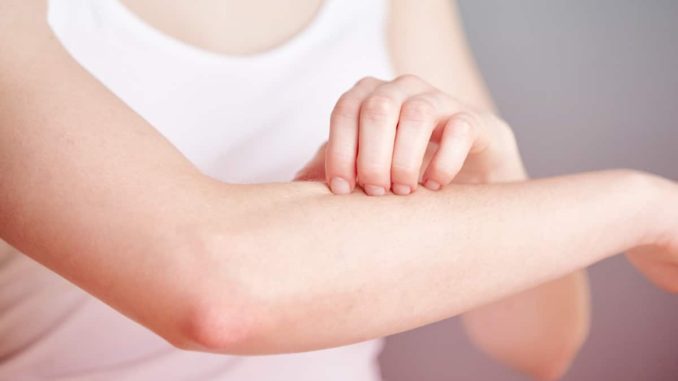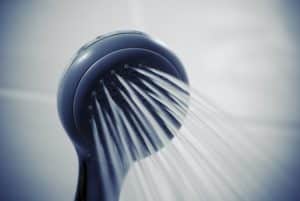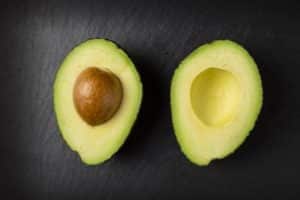
Eczema, especially on the face, can be irritating and very unappealing in most cases. While the rash may resemble an allergic reaction, allergies are not the cause.
There may be some deeper underlying issues that you have not considered when looking for the cause of your Eczema. Luckily, the skin condition is manageable and with the right diet and grooming & hygiene routine, you can reduce the appearance of Eczema and prevent aggravating the condition.
7 Ways To Help You Manage & Treat Your Eczema
As Eczema is a condition that affects the skin, it can be quite hard to hide the skin condition making you paranoid and less confident. See these 7 effective ways to help you treat your Eczema.
1. Biotin
Biotin forms part of the vitamin B complex family. It is a water-soluble nutrient which the body does not produce naturally. As the body doesn’t produce Biotin naturally, it means we need to ensure we get our intake of biotin through foods and supplements.
While it is rare, biotin deficiency can result in rashes on the skin and hair loss. Biotin is essential for producing and maintaining keratinized tissue such as our skin. Biotin can be linked to a reduction in the size and number of Eczema rashes, whilst also reducing skin irritation as a result of eczema.
Health experts at Research and You have created a platform and database of the helpful information you need to know about health supplements such as Biotin.
Biotin is not only great for your skin, but also for your hair & nails too. Due to the number of benefits of biotin, it is a create vitamin to ensure you consume regularly. See our food guide which show the 8 best biotin rich foods to incorporate into your diet.
2. Moisturise
Moisturising is essential especially when managing skin conditions such as eczema. Barrier repair moisturisers have been specifically designed to lock in moisture, repair damaged skin and ease irritation.
These skincare products are found over the counter or can be prescribed by a doctor, however, you should avoid brands that use additional ingredients such as fragrances.
There additional medicated skin products such as corticosteroid creams and topical ointments that you can use in combination with a barrier cream which will prevent infection and reduce inflammation as well. You should ensure that you are moisturising your skin regularly to prevent the condition from worsening. Also consult a healthcare professional before considering such medicated products.
Alternatively, your daily moisturiser could be the cause of your Eczema flare up. Consider doing some trial and error at home with your products to see how your skin & Eczema responds to not using a product for a few days.
3. Shave With Caution
You may find that facial hair can aggravate your Eczema symptoms & irritation further. Keeping a clean shaved face can minimise itching and reduce any bacteria that may be housing itself under your beard. What’s more, when facial hair grows, it starts to curl back on itself and cause itching and irritation. This is the cause of beard itch. This can make Eczema worse.![]()
When shaving, it’s best to use a shaving cream that is free of any fragrances and has added moisturising properties – consider a sensitive shaving cream like Nivea Men Sensitive Cooling Shaving Gel.
Always make sure that your razor blade is sharp and that you shave with the grain of the hair as opposed to against the grain. A blunt razor can sometime shave off more skin than hair – not great for Eczema. A good shave will help to prevent any ingrowing hairs and further rashes that may be caused by inflammation of the hair follicle.
4. Catch Some Rays
Getting out in the sunlight can be beneficial because the rays from the sun are a form of natural vitamin D. Vitamin D increases the production of cathelicidin, a protein that protects the skin against viruses, infection, and bacteria.
People who suffer from eczema usually have low levels of cathelicidin which means that the skin is more prone to these infections and viruses.
While the sun may be beneficial in this case, it is important to note that you should only spend a moderate amount of time in direct sunlight. Always ensure that you protect your skin with sunscreen if you are planning to spend some time outdoors.
5. Avoid Long Hot Showers
We can all agree that there is nothing more relaxing than a long hot shower especially after a workout or a long stressful day but you could be doing more harm to your skin. Hot water tends to dehydrate the skin because it strips it of natural essential oils.

It’s always best to take a cooler shower for a shorter period to avoid aggravating your condition even further. The cooler water also helps to reduce inflammation and soothe the skin.
The added bonus is that you save money on your utility bill as well.
6. Rethink Your Diet
You may find that some foods trigger your symptoms and cause an Eczema flare up. Everyone reacts differently to foods so it is important to know which foods are affecting your condition.
If you feel your symptoms are starting to worsen throughout the day, make a note of all the foods you have eaten throughout that day. Start excluding them from your diet to see if avoiding those foods have any effect on your condition.
Since inflammation is a common symptom, there are many foods that you can eat which are not only healthy but have anti-inflammatory properties. One example of this is Omega 3 rich foods such as salmon and flax seeds.
Here are a few more foods that have potent anti-inflammatory properties:
 Fruits such as grapes and berries
Fruits such as grapes and berries- Green Vegetables Broccoli, spinach, and kale
- Fatty Fish such as tuna, mackerel, and sardines
- Peppers
- Green tea
- Olive oil
- Turmeric
- Ginger
- Avocado
As Eczema is a skin condition linked to inflammation and irritation of the skin, it would be worth while trying to maintain a healthy balanced diet but incorporating the above foods into your diet.

